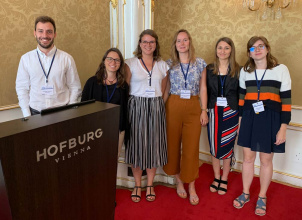NEWS
-
Published on
Radio show with Marie Schaer
Every Friday, the CQFD swiss radio show receives a scientist to talk about his or her work and research. The 6th of September 2019, the journalist Adrien Zerbini invited Marie Schaer, Synapsy member, professor at the University of Geneva, and head of the Centre de consultation spécialisé en autisme (CCSA) of Geneva. One hour to discover Marie Schaer and talk about eye tracking techniques, Early Start Denver Model program and brain imaging in the field of autism spectrum disorders. Radio show CQFD – RTS la 1ère >
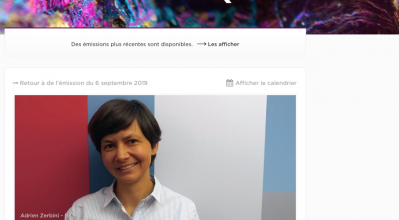
-
Published on
Early social contingencies impairment
Autism spectrum disorder (ASD) is a heterogeneous neurodevelopmental disorder characterized by social and communication deficits, repetitive behaviors, and restricted interests. Literature shows that atypical neural processing of social visual information contributes to impaired social cognition. However, evidence for early developmental alterations in neural processing of social contingencies is scarce since most studies have been conducted in older children and adults. The group of Marie Schaer, Professor of Neurosciences at the University of Geneva and member of the Swiss National Center of Competence in Research (NCCR) Synapsy, aimed to investigate alterations in neural processing of social visual information in children with ASD compared to age-matched typically developing peers. To this aim, they used a combination of high-density EEG and eye-tracking in 2–5 years children. Schaer’s experimental approach is unique and results were published last week in the journal Frontiers in Psychiatry. They suggest that impairments in brain regions involved in processing social contingencies are present from an early age in ASD.
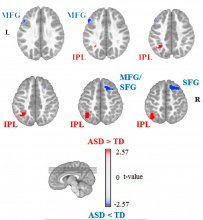
-
Published on
Grant from the National MD-PhD program for Dr. Michel Godel
The MD-PhD national program grants allow eleven young doctors engaged in research to complete a doctorate in natural sciences, public health, clinical research or biomedical ethics at a Swiss university. Applications for an MD-PhD grant were evaluated in two stages: among the 22 applications pre-selected this year by the local MD-PhD Commissions, the National Commission of Experts proposed to support 11 young researchers. The subsidies cover the salary of the beneficiaries for a period of two to three years. They are financed by the Swiss National Science Foundation (SNSF), Swiss Cancer Research (KFS) and the SAMS for a total amount of more than 2 million Swiss francs. Michel Godel, Synapsy clinician-scientist from UNIGE is among the recipients of the 11 grants awarded to young physicians engaged in research by the National MD-PhD program. He will work with Synapsy PI Prof. Marie Schaer, in the Department of Psychiatry at UNIGE, on the project: Early deviations in auditory neuroprocessing development as prodromal neurobiological markers for Autism Spectrum Disorders
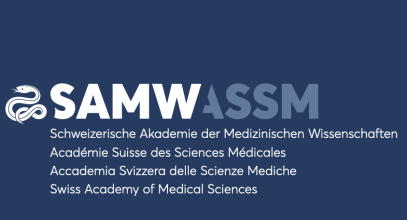
-
Published on
Joint NCCR Synapsy – IRCN “22q” Workshop, Jul y 6-7, 2019, Tokyo, Japan
This past weekend, a joint NCCR Synapsy-IRCN workshop took place University of Tokyo. Several Synapsy PIs from UNIGE attended and presented their research (Profs. Alexandre Dayer, Stephan Eliez, Marie Schaer, Camila Bellone, Alan Carleton).
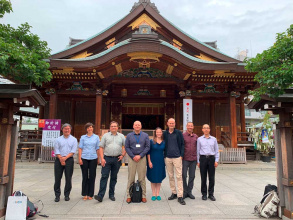
-
Published on
High-risk youth symposium at the 18th ESCAP congress in Vienna
The symposium “Neural correlates of cognitive control impairment in high-risk youth” organized by Synapsy member Dr. Camille Piguet, from UNIGE, together with prof. Ayse Belger, Director of the Frank Porter Graham Child Development Institute, University of North Carolina at Chapel Hill successfully took place at this year’s ESCAP congress in Vienna. Affiliated members Prof. Nadia Micali and Prof. von Plessen as well as Synapsy postdoc Dr. Cristina Berchio held presentations.
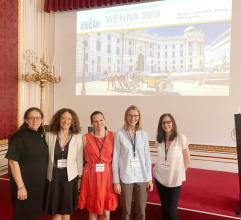
-
Published on
22q11 symposium at the 18th ESCAP congress in Vienna
Members of the group of Prof. Stephan Eliez, from the University of Geneva successfully finished the first Synapsy symposium at this year’s ESCAP congress in Vienna on Sunday June 30th. Topics covered neurodevelopmental and cognitive endophenotypes of psychosis vulnerability in 22q11DS.
